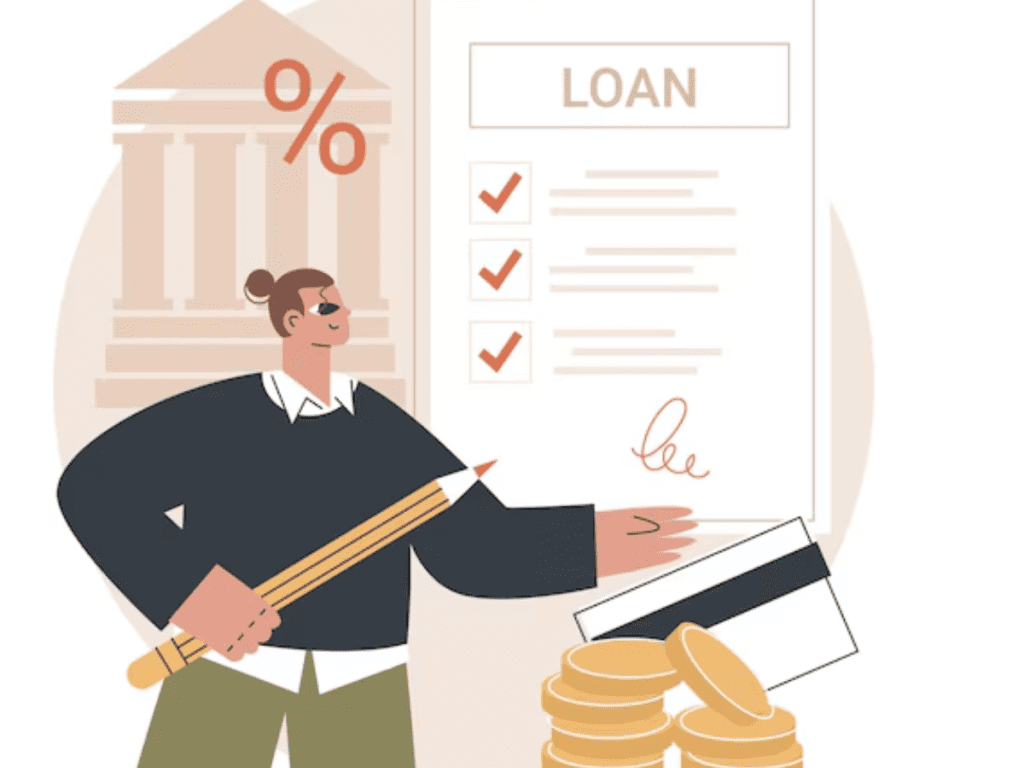Introduction
Borrowing a personal loan can be a necessary financial resource to cover expenses like home renovations, consolidating debt, medical expenses, or even financing big life events like weddings or vacations. But most personal loans have pretty high interest rates, and if you don’t pay them back over time, they end up costing you much more than you actually borrowed. The best news is that there are some strategies you can use to pay off your personal loan sooner and save yourself the cost of the interest. By taking proactive action and following a few simple steps, you can lower the overall cost of the debt and become debt-free earlier.
How Interest Works in Personal Loans
Before we discuss how to pay off your loan in a hurry, it’s important to know how interest works. A personal loan usually has both a principal amount (the loaned money) and an interest rate levied by the lender. The amount you pay back each month is both interest and principal, but interest is paid on the outstanding principal balance. That is, the longer you take to repay the loan, the higher the interest you will pay.
Interest in most personal loans is either fixed or floating:
- Fixed Interest Rate: In a fixed-rate loan, the interest rate does not change during the life of the loan. This provides stable monthly payments and protects you from interest rate increases.
- Floating Interest Rate: A floating-rate loan, by contrast, has an interest rate that is variable according to market conditions, and your monthly payments are therefore less predictable. Although a floating rate may initially be lower than a fixed-rate loan, it can also increase over the years, resulting in a greater total amount paid in interest.
The most important thing in saving on interest charges is minimizing the duration to repay your loan. The quicker you repay it, the smaller the total amount of interest you will pay.
Ways to Pay Off Your Personal Loan Quickly
1. Make Extra Payments
One of the best methods of paying off your personal loan early and saving on interest charges is to make extra payments. Even little extra payments will pay off big in the amount you owe and how long it takes to repay the loan.
How it works: The lender uses the extra payments against the loan principal, not interest, when you make extra payments. By paying down the principal more quickly, you lower the amount of interest that accumulates on your balance. This can save you big money over the long term.
For instance, if you have a five-year loan and pay an extra few hundred dollars every couple of months, you can easily reduce the time it takes to pay off the loan and save on the amount of interest you pay.
2. Round Up Your Monthly Payments
If making large extra payments isn’t feasible, consider rounding up your regular payments to the nearest hundred or thousand. For instance, if your monthly EMI is one thousand eight hundred and twenty-five dollars, rounding it up to two thousand dollars adds an extra one hundred seventy-five dollars to the principal every month. This extra amount will help reduce the loan balance more quickly.
This small monthly increase may not be so obvious at first glance, but cumulatively it can add up over the life of the loan to help significantly reduce what you pay in interest and help pay off the loan more quickly.
3. Go to Biweekly Payments
Rather than paying the entire amount once a month, try shifting to biweekly payments. In a biweekly payment, you pay half of your monthly EMI in every two-week period. This approach makes an additional payment a year—26 half-payments instead of 12 full payments in a year.
Since you’re paying more every year, your principal amount declines sooner, and you get to clear the loan before the intended time, thus saving on interest charges.
4. Refinance Your Loan for Better Terms
If your personal finances have improved since you initially borrowed the loan or if interest rates in the market have fallen, refinancing your personal loan can be a good idea. Refinancing involves borrowing a new loan to pay off your current one, usually with more favorable terms like a lower interest rate or shorter loan period.
Refinancing can lower your interest rate and, in turn, decrease your monthly payments as well as the amount of interest you pay long-term. The savings from refinancing can then be applied towards making extra payments, which also decreases the payback time for your loan. Be aware, though, of any refinancing charges or prepayment penalties of your initial loan before proceeding.
5. Make Lump-Sum Payments When Possible
Whenever you get a windfall of money, like a tax refund, bonus, or inheritance, think about putting some of that money toward a lump-sum payment on your personal loan. By paying down the loan balance by a large amount with one big payment, you can save money on interest paid over the life of the loan.
The advantage of lump-sum payments is that they drastically reduce your principal, thus reducing the overall interest burden. If you’re fortunate enough to have a large amount of money come your way, applying it to your loan can accelerate your journey to being debt-free.
6. Consider a Loan Balance Transfer
Most lenders allow you to transfer the balance of your loan to a different lender, at a lower interest rate. This is a balance transfer, and it can save you money in interest if you’re paying a high rate of interest now.
A balance transfer loan can be especially useful if your existing lender charges high interest rates, or in case market rates have fallen since you have taken the loan. While transferring the loan, make sure that the new lender does not impose any hidden charges or prepayment penalties, and verify if the loan conditions are more favorable to you in the long term.
7. Don’t Take on More Debt
While it might be tempting to use your available credit or take out another loan for various expenses, taking on additional debt can extend your loan repayment period and result in higher interest payments. Before taking on more debt, carefully evaluate your financial situation and determine whether it’s necessary.
The longer you remain in debt, the greater the interest you will pay, so it is advisable to prioritize paying off your existing loan as soon as possible to prevent further financial burden.
Advantages of Paying Off Your Personal Loan Earlier
1. Lower Interest Charges
The biggest benefit of paying off your loan quicker is the savings in the amount of interest you’ll pay. Interest is charged on the current principal balance, so the sooner you lower that balance, the less you will pay in interest.
By adding extra payments or changing to biweekly payments, you can put money toward the principal balance faster, thus lowering the interest over time.
2. Better Credit Score
Having a high credit score ensures you get the best loan rates in the future. When you settle your personal loan in a timely manner and in full, it reflects well on your credit score, which informs lenders that you are a responsible borrower with credit.
Settling your loan early may also prove to credit bureaus that you are capable of effectively managing your finances, which can increase your creditworthiness.
3. Financial Freedom
The most rewarding advantage of repaying a personal loan within a short time is financial freedom. With the loan being repaid, the funds that have been allocated to loan repayment can now be used to accomplish other financial objectives, like retirement savings or investing in other ventures. Freedom from debt brings comfort and enables you to live with greater financial security.
4. Greater Savings Opportunity
After you’ve repaid your personal loan, the funds you were putting toward monthly loan payments can be invested or saved. This can result in increased savings, building a cushion against unexpected expenses or enabling you to accumulate wealth for the future.
Aspects to Consider Before Repaying Your Personal Loan Ahead of Schedule
While paying off your loan early can offer several benefits, it’s important to weigh all factors before moving forward:
- Prepayment Penalties: Some loans come with penalties for early repayment. It’s essential to check your loan agreement to determine if there are any fees associated with paying off the loan before the scheduled end date.
- Emergency Fund: You should have an emergency fund before you apply a large chunk of your money towards loan repayment. Financial security is key, and it’s important to strike a balance between debt repayment and saving for unforeseen expenses.
- Type of Loan: Various loans have varying repayment terms. Consider whether you have a fixed or floating interest rate and how each will influence your capacity to repay the loan ahead of schedule.
Conclusion
Repaying a personal loan earlier is a great way to save money on interest and become financially independent. By adopting intelligent tactics like making extra payments, refinancing, utilizing lump-sum payments, or even a balance transfer, you can pay off your debt faster and release funds for other purposes. But it is important to look at things like prepayment charges, your emergency fund, and your general financial health before deciding on anything. With persistence and a definite repayment strategy, you

